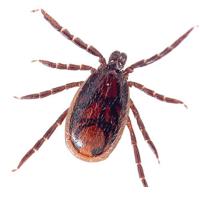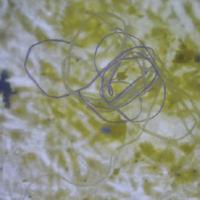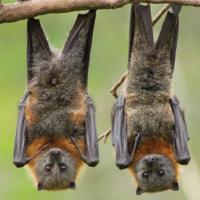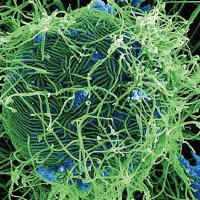
Discoveries
Rhesus Macaques Develop Promising Immune Response to SARS-CoV-2
In a promising result for the success of vaccines against COVID-19, rhesus macaque monkeys infected with the human coronavirus SARS-CoV-2 developed protective immune responses that might be reproduced with a vaccine. The work was carried out at the California National Primate Research Center and published in the journal Nature Communications. The findings imply that vaccines that induce durable protective immunity against SARS-CoV-2 do so by stimulating robust germinal center responses. Germinal centers contain T follicular helper cells that are associated with generating plasma cells that remain in the body for many years to produce antibodies. This suggests that vaccines which induce these responses will support immunity. Animal studies are critical to conclusively identify markers of vaccine-mediated protection by indicating which immune cells triggered by the vaccine are protective. Understanding immune determinants of protection against infection and disease is crucial to enhance vaccine efficacy.

Higher Temps Change Tick Behavior
As climate change causes higher global temperatures, certain disease-carrying ticks may start to prefer humans to their usual canine targets. A UC Davis study led by school researchers showed that brown dog ticks, which can transmit lethal Rocky Mountain spotted fever, switch their preferences from dogs to humans when the weather gets warmer. For the experiments, the researchers constructed two large wooden boxes connected by a clear plastic tube. A volunteer climbed in one box, a dog was placed in the other, and ticks were released into the tube (mesh barriers prevented the ticks from accessing the boxes). At a temperature of 100 degrees, the ticks were two and a half times more likely to prefer the human to the dog, compared to the same experiment performed at 74 degrees. These findings suggest that rising temperatures could lead to more human infections with dangerous tick-borne pathogens and provides evidence for the impacts of climate change on health.

Microplastics in Lake Tahoe
UC Davis researchers, including some from the school, tested beaches around Lake Tahoe and found microplastics in almost every sample. Microplastics are tiny pieces of plastic that are commonly transported to bodies of water through wastewater. Since that is not an input system for Lake Tahoe, the identified contaminants are likely coming from litter, such as plastic bottles or bags, that are not disposed of properly. With no way out of the lake, these microplastics could have implications for aquatic life such as Asian clams and Kokanee salmon, which are known to consume microplastics. Divers will be working to remove some of the microplastics from the bottom of the lake, but it is important to eliminate as much plastic as possible when visiting Tahoe. Bring a reusable water bottle, recycle, and pick up trash to help minimize pollution in the lake.

More Coronaviruses Discovered
Researchers in Cambodia and Japan have identified coronaviruses similar to the SARS-CoV-2 virus (responsible for the current pandemic), in frozen bat samples and bat droppings, representing the first known relatives of SARS-CoV-2 found outside of China.
Dr. Tracey Goldstein, an associate director of the UC Davis One Health Institute, is involved with the Cambodian team and part of the U.S.-funded PREDICT project that surveyed wildlife globally in search of viruses with pandemic potential. If the newly identified viruses are closely related to the pandemic virus, they could shed some light on the route of transmission of SARS-CoV-2 from bats to people and provide information on the pandemic’s origin.

Ebola Present Before 2018 Outbreak
Antibodies to the Ebola virus were found in people up to a year before the virus outbreak began in the Eastern Democratic Republic of Congo in 2018. A UC Davis-led study suggests that early cases may have been missed or exposure is more common than previously thought, and showed that women had a significantly increased risk of exposure. Published in the journal One Health Outlook, the study also documents the first detection of human antibodies to Bombali ebolavirus, a species discovered in bats in Sierra Leone by scientists from the UC Davis One Health Institute and Columbia University, showing that spillover of the virus from bats to humans likely occurred. The results highlight that there is a range of severity with these diseases and that spillover doesn’t always cause lethal outbreaks. The study demonstrates the need to address how humans come into contact with wildlife and the viruses that are exchanged. Preventing spillover will depend on understanding and minimizing high-risk interactions between humans and wildlife.

Deadly Rabbit Disease Found in San Joaquin Valley
The California Animal Health and Food Safety Laboratory has confirmed new cases of Rabbit Hemorrhagic Disease Virus serotype 2 (RHDV2) in domestic rabbits in Southern California. This extremely contagious viral disease is endemic in several southwestern states, including California, and has been linked to dramatic declines in some wild rabbit populations. Domestic rabbit owners can protect their animals by keeping them indoors in areas with known disease, and practicing biosecurity, including avoiding contact between their animals and other rabbits. There is currently no approved vaccine for RHD in the United States, but veterinarians in California are able to order a European vaccine through the California Department of Food and Agriculture (CDFA). Symptoms include: loss of appetite; lethargy; high fever; bleeding from nose, mouth or rectum; seizures; difficulty breathing; and sudden death. RHD is a reportable condition in the United States and the CDFA should be notified of sick domestic rabbits.
